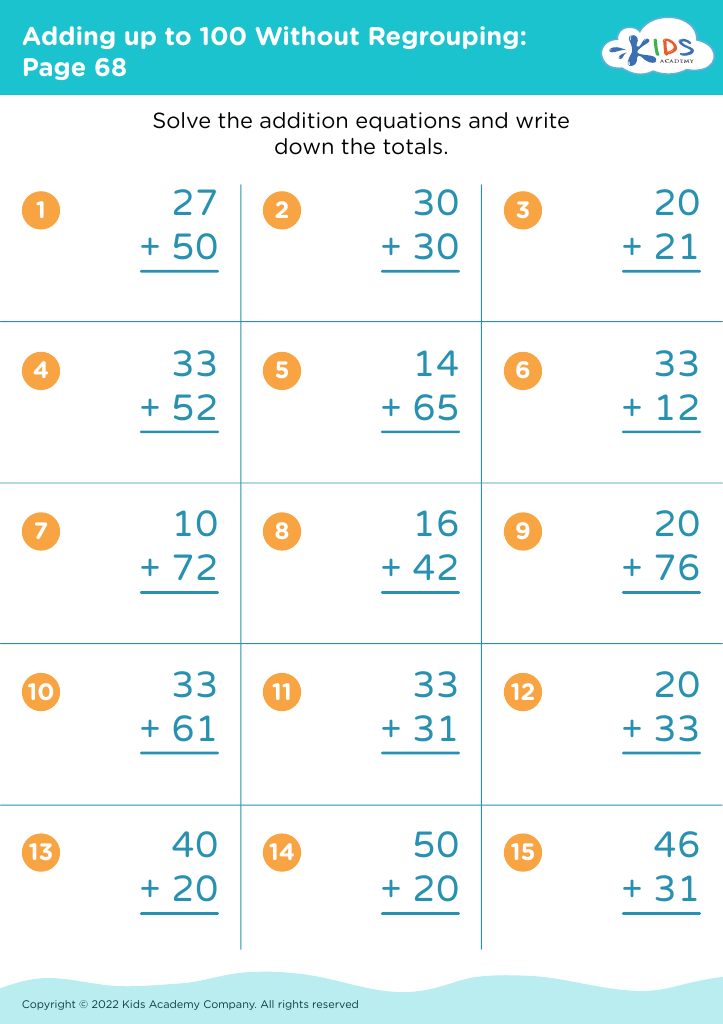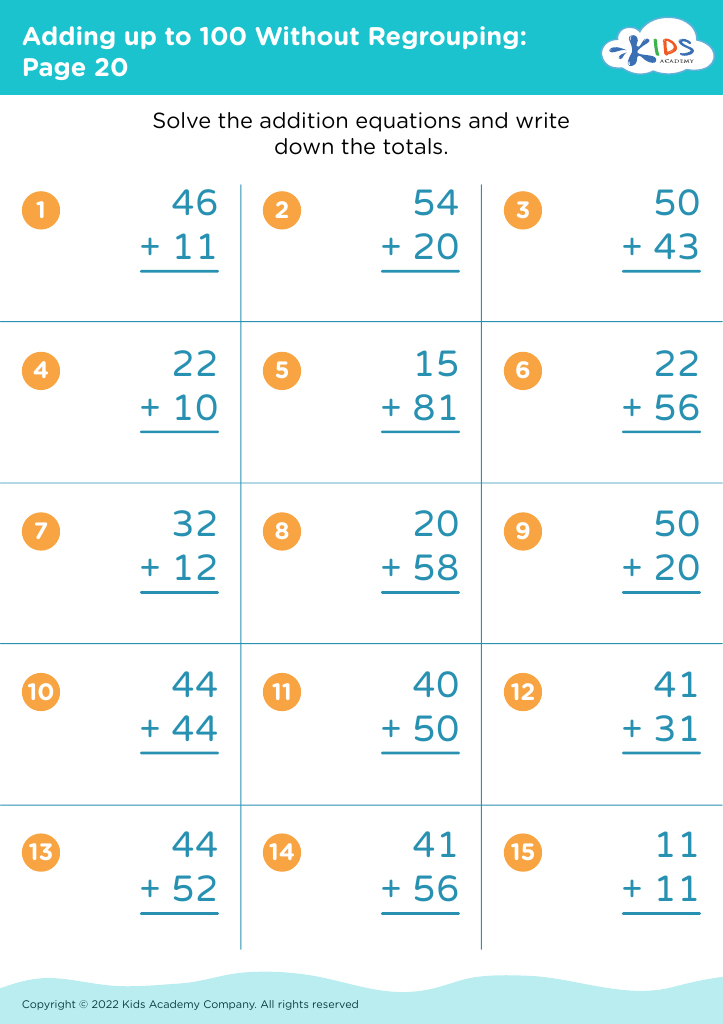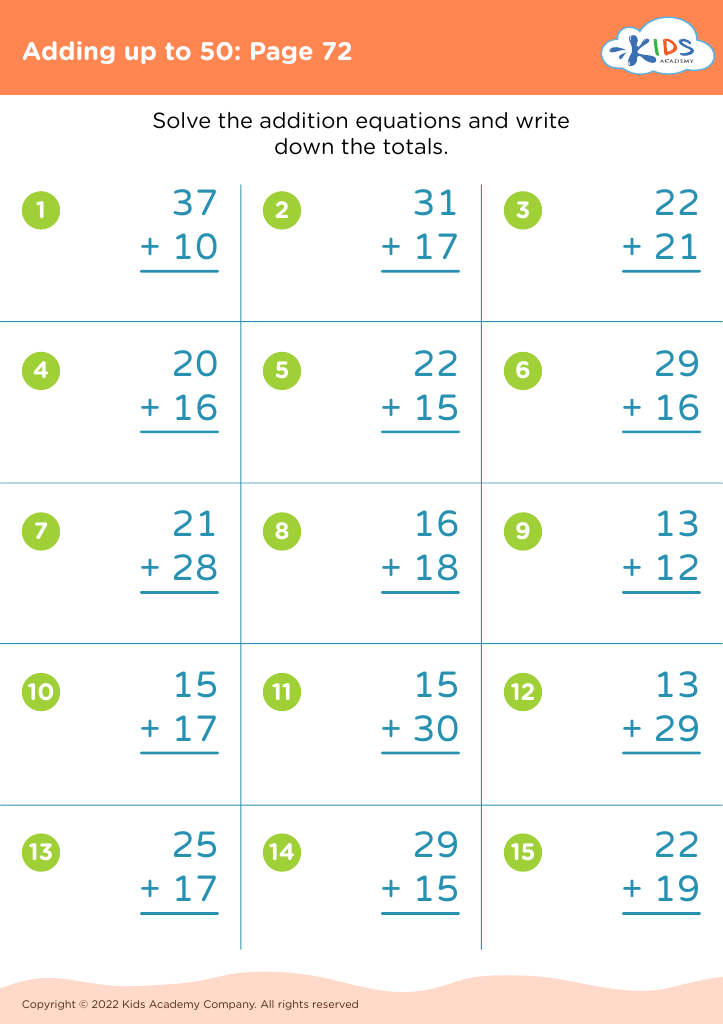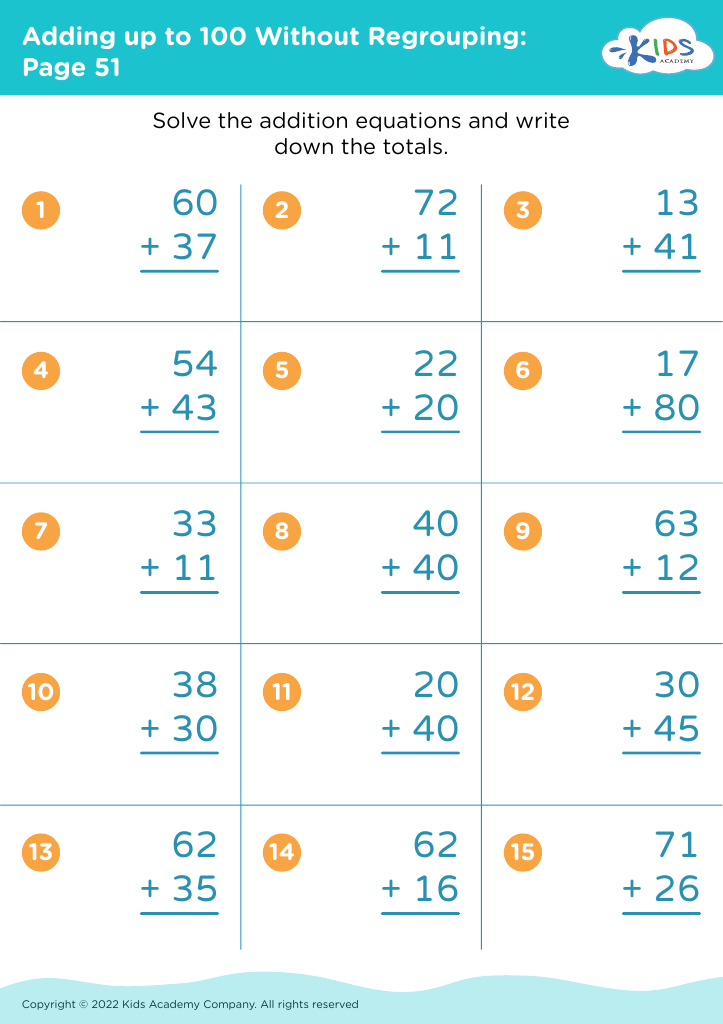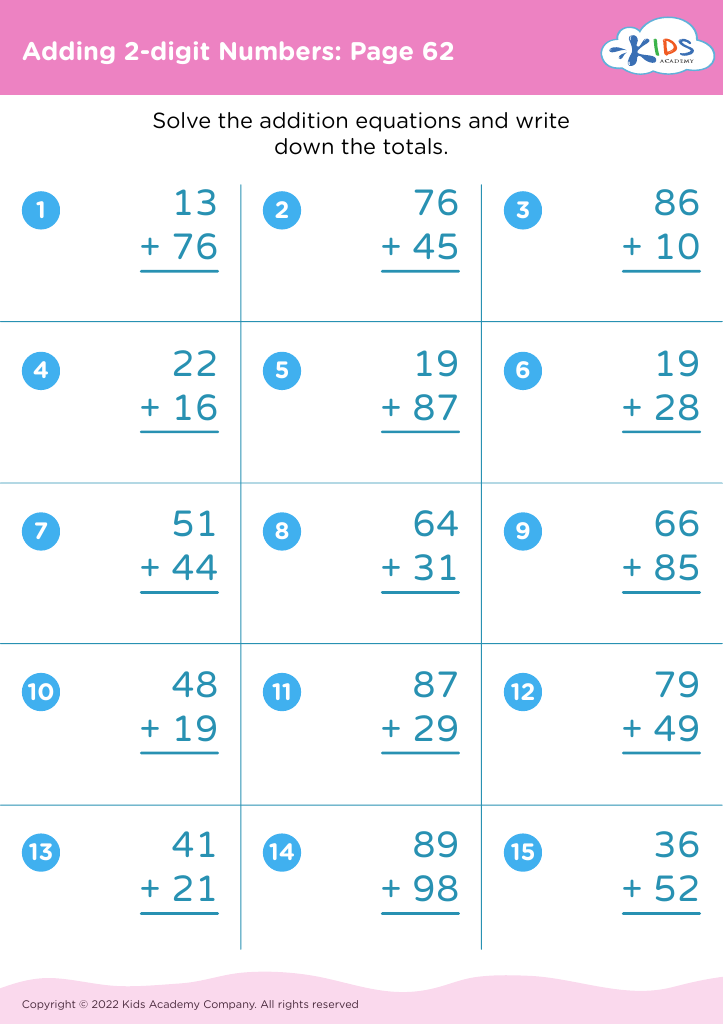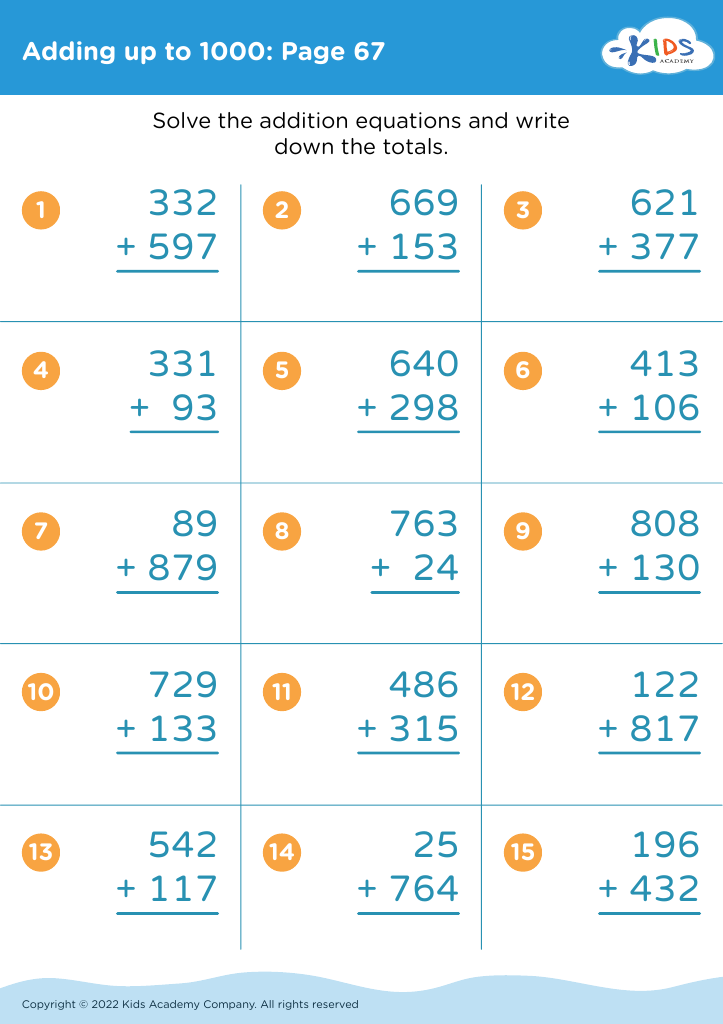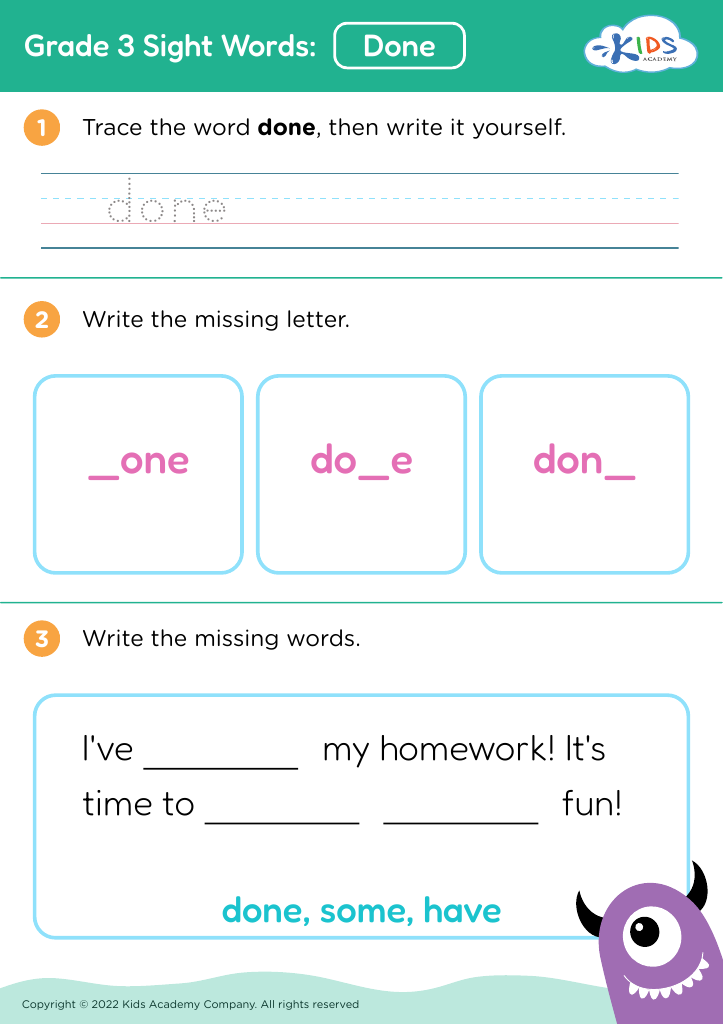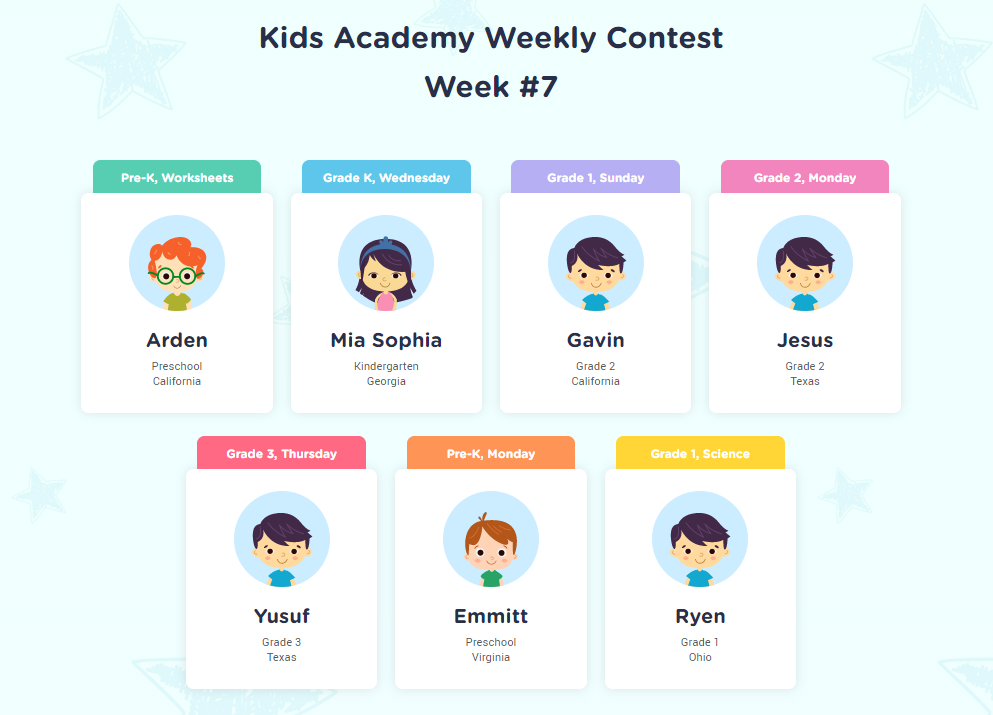Practicing multiplication Worksheets for 8-Year-Olds
14 filtered results
-
From - To
Unlock your child's potential with our engaging Practicing Multiplication Worksheets tailored for 8-year-olds! Designed by education experts, these worksheets captivate young learners with fun and interactive problems, reinforcing essential multiplication skills. Perfect for both classroom and home use, our sheets ensure that children grasp multiplication fundamentals while enjoying the learning process. Watch kids build confidence and improve their mathematical abilities through meticulously crafted exercises that align with current educational standards. Make math enjoyable and effective with Kids Academy’s Practicing Multiplication Worksheets—where practice meets play for brighter futures!
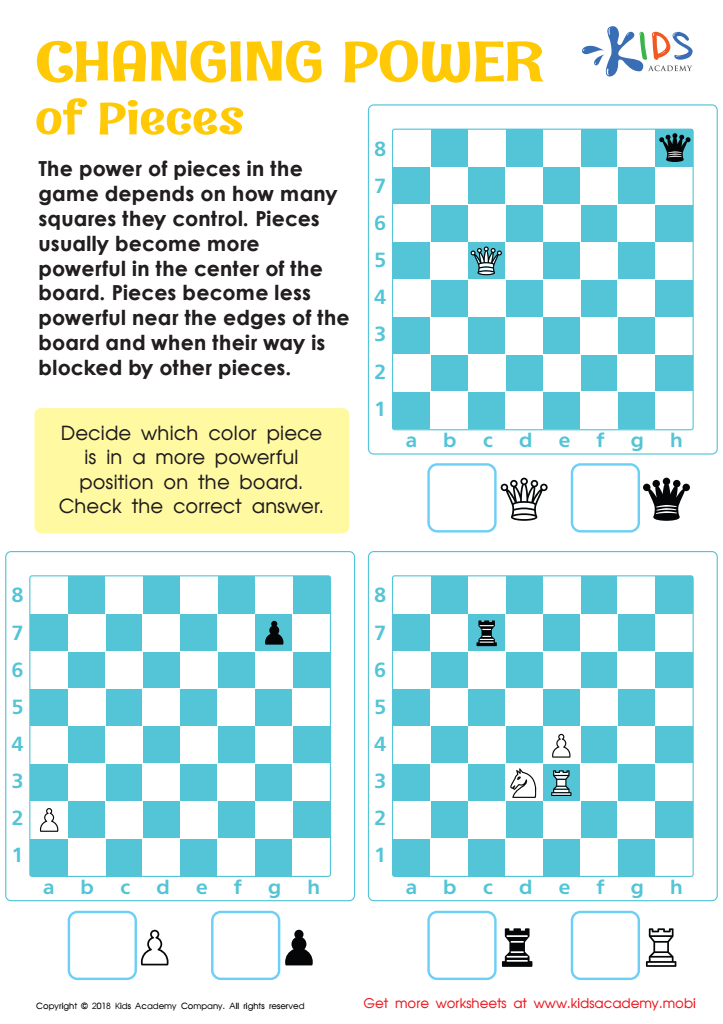

Changing Power of Chess Pieces Worksheet
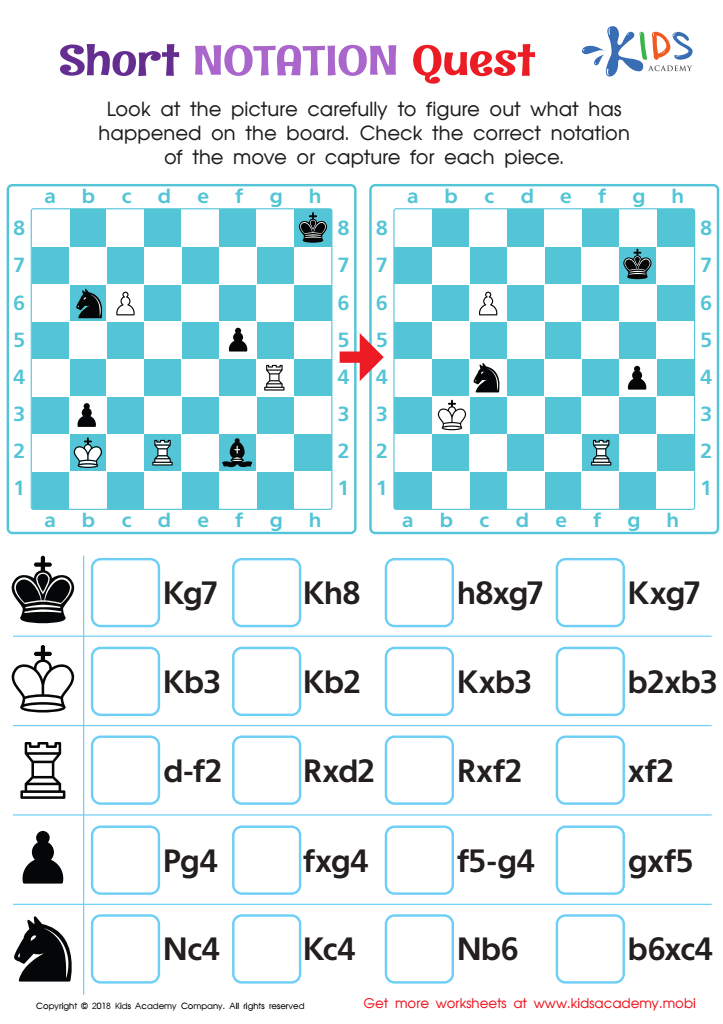

Short Notation Quest Worksheet
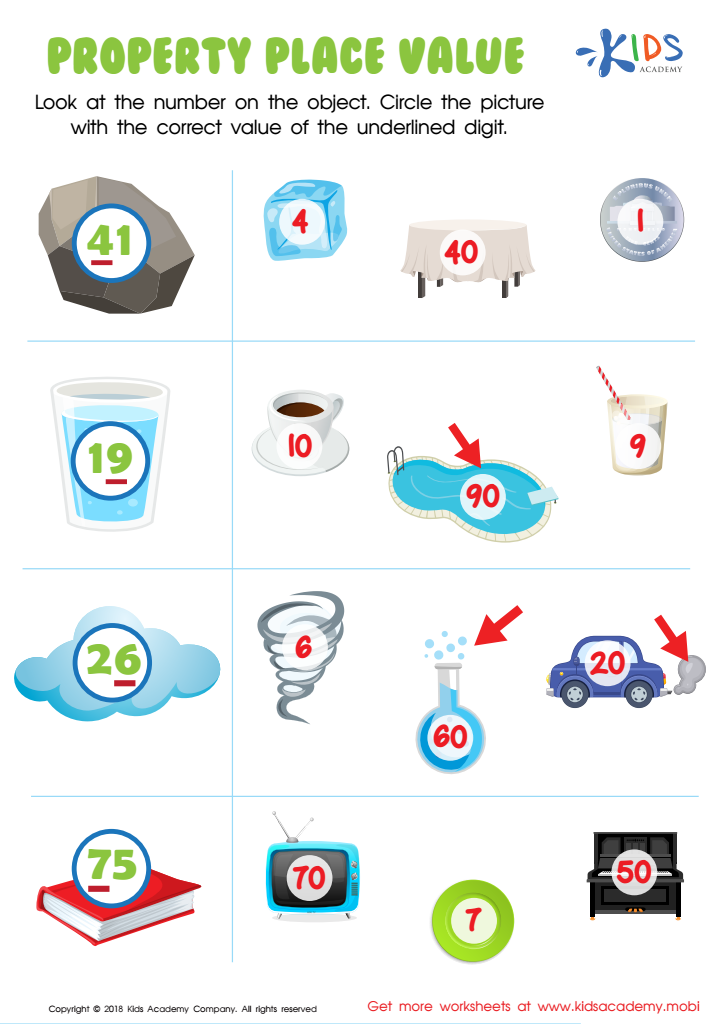

Property Place Value Worksheet
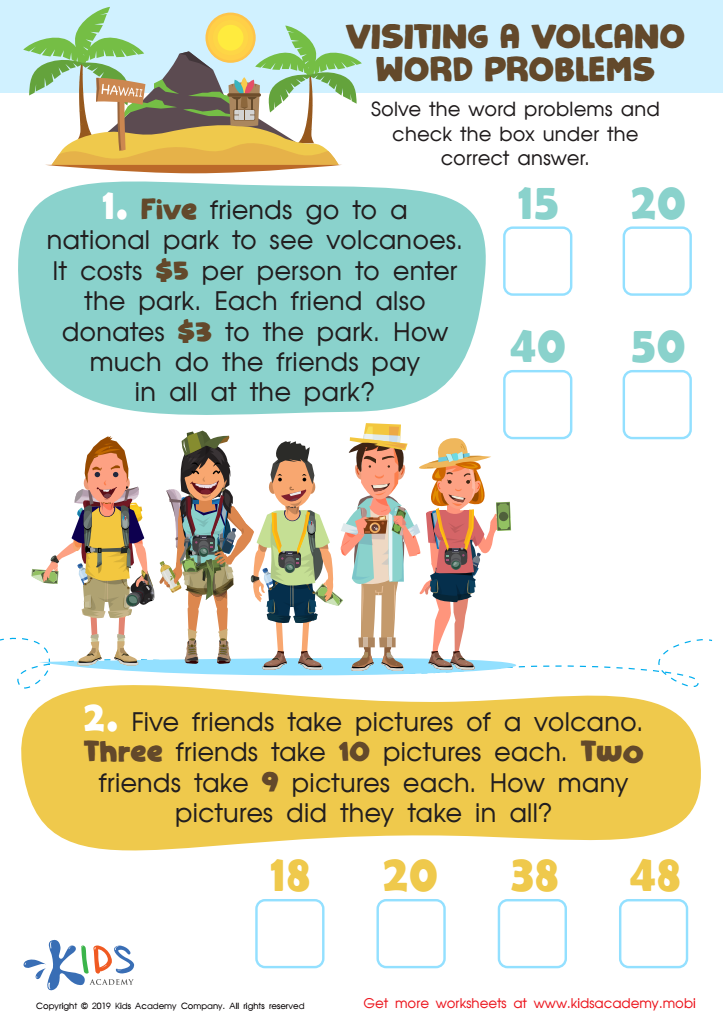

Visiting a Volcano Word Problems Worksheet
Practicing multiplication at around 8 years old is a critical step in a child’s math education, and both parents and teachers should highly prioritize it. This age is typically when children transition from simple arithmetic to more complex mathematical concepts. Learning multiplication builds a strong foundation for higher-level math, enhancing skills necessary for division, fractions, and algebra. It reinforces cognitive abilities like memory, logical thinking, and problem-solving.
Parents and teachers who encourage and assist with multiplication practice help children develop confidence and competence in math, which is critical not only for advanced math but also in everyday activities and various future careers. Multiplying efficiently allows children to solve more complex problems faster, promoting their academic success and improving their overall school performance.
Moreover, consistent practice fosters a positive attitude toward math, converting potential anxiety into achievable challenges. When teachers integrate engaging methods like games, visuals, and real-life problems, children stay motivated and interested. Parents' involvement ensures regular practice beyond the classroom and shows children that education is valuable. Understanding multiplication also makes children more prepared for standardized tests, which often include math sections. Therefore, a collaborative effort in instilling this fundamental skill benefits children's overall intellectual growth and future success.


 Assign to My Students
Assign to My Students


